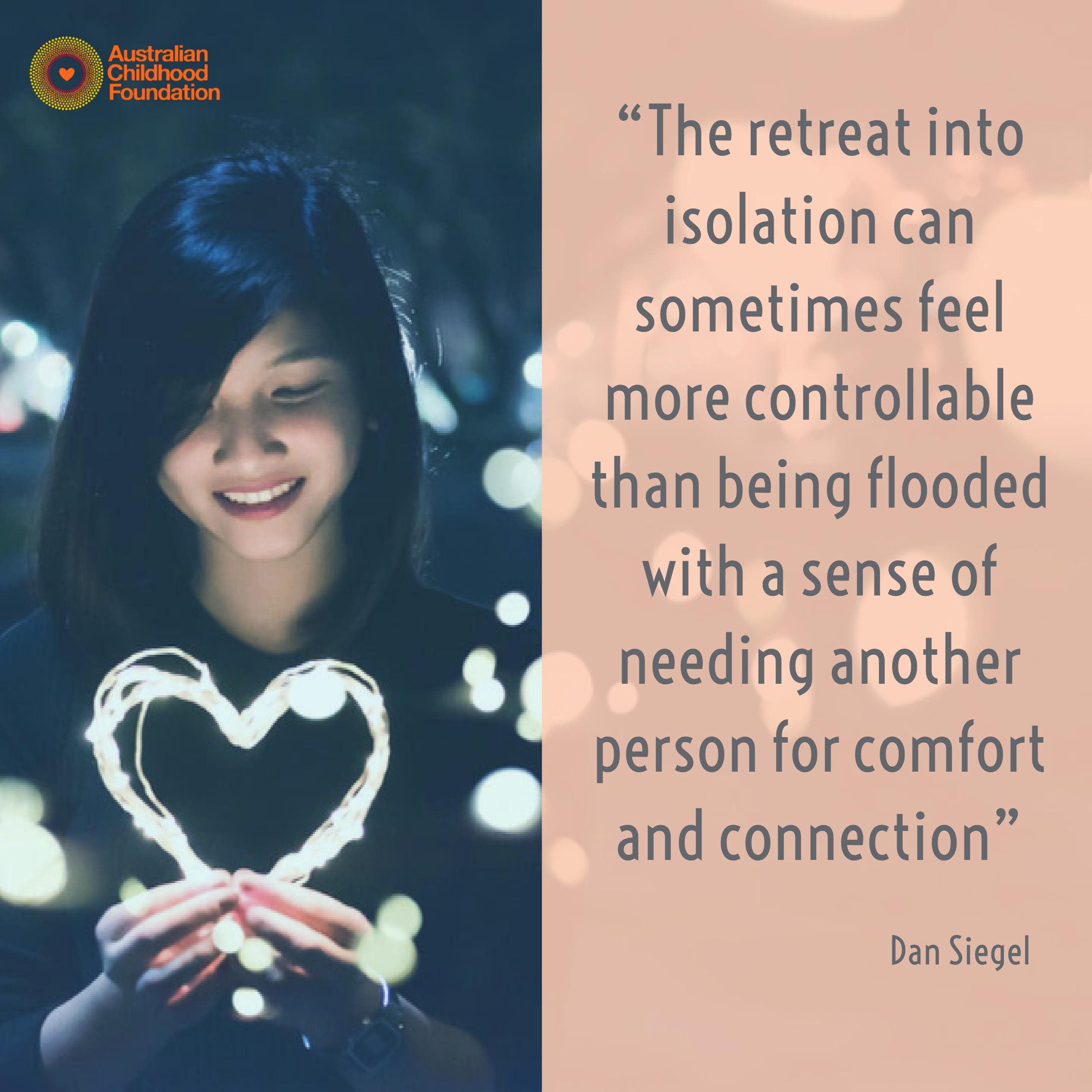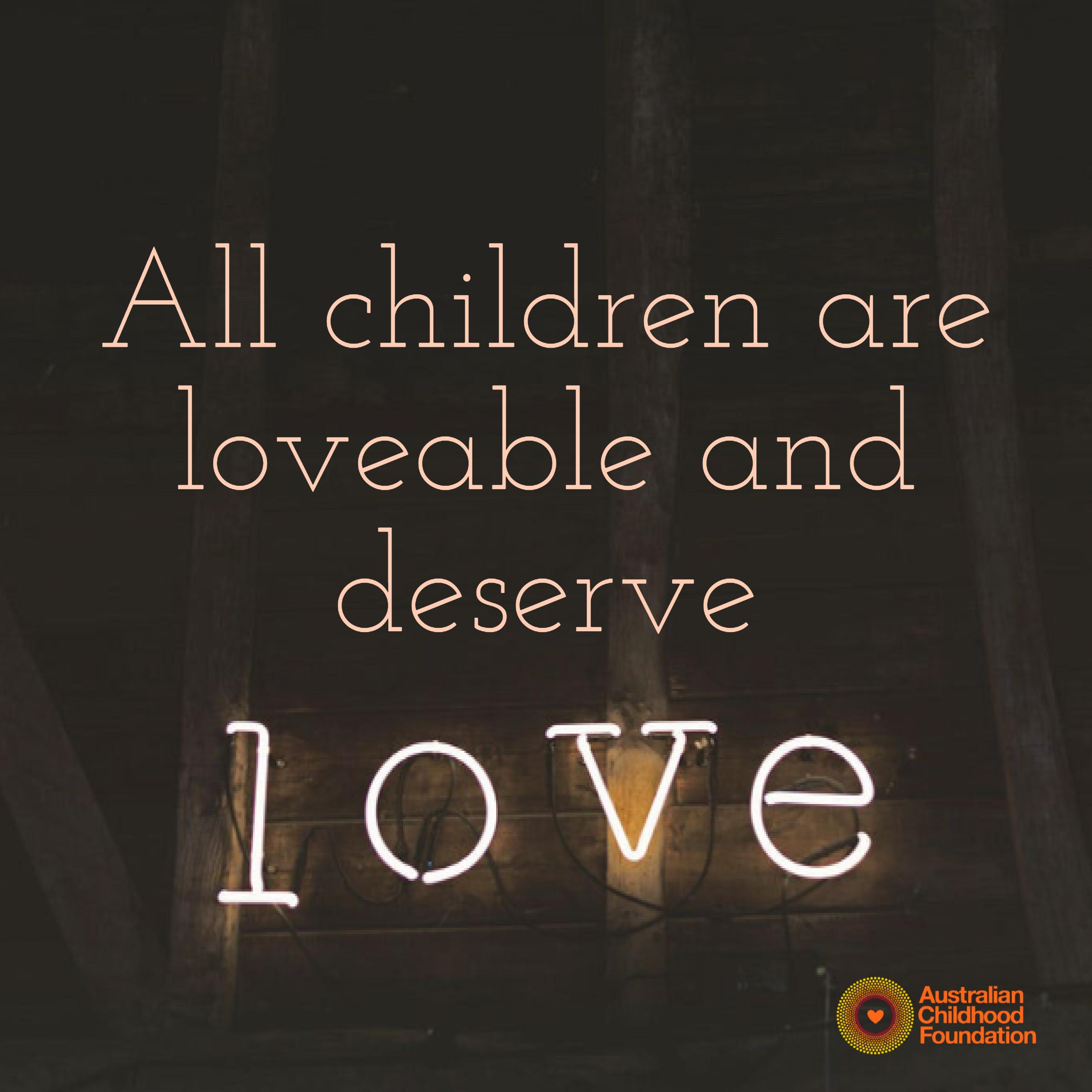
What is love?
Professional Education and Training a the Australian Childhood Foundation.
The recent launch of ACF’s new logo and the narrative of love that accompanies it has prompted me to consider this concept of love in our work with traumatised children. Having love as a value seems fundamental to everything we do in both our personal and professional lives. Yet, when we unpack what love means in the context of children who have experienced trauma, it is way more complex.
In past incarnations, I worked as a trainer and assessor of foster carers for an NGO in South Australia. One of the most common themes that emerged with the potential foster carers I assessed was that they were going to love the children in their care and believed that this would be all they needed. It was perfectly understandable that they would feel this way. They had lots of love to give and wanted to share that love and sense of family with children that needed it. There is no doubt that with persistence and time, that love, along with other trauma informed strategies could make a difference. The difficulty for them was to grasp what love means, especially to a child who has experienced trauma.

Dan Siegel states: “The retreat into isolation can sometimes feel more controllable than being flooded with a sense of needing another person for comfort and connection” (2012, page 385). To me, this quote really captures the inner world of the child and shows how truly terrifying love can be for a child who has experienced abuse and neglect. The child’s parents may have loved them, yet they were not safe, and their needs were not met. How confusing love would be for a child who received ‘love’ from an abusive parent or caregiver and was then moved into a care environment and expected to accept and reciprocate this love with other adults who enter their world.
So what is love?
On the surface, love looks like that fluffy, soft, gooey ideal that we all yearn for throughout our lives. To have someone love us is to have someone who shows us affection, care and concern for our wellbeing. To have a mutual connection that binds us together. Love brings a sense of mutual reward. In healthy environments and relationships, when you give love, you often receive something along the lines of love in return: a sense of deep connection, belonging and identity. Caring for children who have experienced trauma can also be like this and providing care brings many amazing and life changing rewards. For many carers I had assessed though, the belief that if they showed affection, care and kindness (love) to children coming into their care, they would ‘fix them’ and they would be rewarded with that child’s love in return, can prove problematic.
This idea makes me think of Dan Hughes and Jon Baylin’s book “The Neurobiology of Attachment Focussed Therapy” (2017) which discusses blocked trust and blocked care and how to build healthy attachment relationships with children who have experienced trauma. Hughes and Baylin discuss how children who have experienced abuse and neglect develop adaptive ways to cope with their unsafe care environments, so when moved into a new and safe care environment, they can struggle to understand, interpret and respond to the relational templates provided by the new carers. These children have learned to mistrust what they are experiencing and so often present in ways that are challenging and incoherent to their carers. Often displayed as aggressiveness, violence, defiance, excessive neediness, clinginess or controlling behaviours, these challenging presentations are manifestations of the child’s inability to express what they truly need. Rather than being understood this way however, these presentations are viewed mostly as ‘unloving and naughty behaviours’.
Many carers continue to try to provide a ‘loving’, caring environment yet the child continues to challenge them. Through lack of reciprocity, connection and reward from the child blocked care develops where the carer becomes defensive and then stuck in a negative cycle with the child. In this scenario, there is little room for the so called ’fluffy, gooey love’.  The reality of loving children who have experienced trauma is often much more intricate than that. Loving someone, particularly a child whose relational templates tell them that no adult is safe, that the world is unsafe, can be exhausting and challenging work. Alongside the gentle and heartfelt moments you do experience with the child, there are those times when you feel so challenged that you question your own capacity to love whole heartedly.
The reality of loving children who have experienced trauma is often much more intricate than that. Loving someone, particularly a child whose relational templates tell them that no adult is safe, that the world is unsafe, can be exhausting and challenging work. Alongside the gentle and heartfelt moments you do experience with the child, there are those times when you feel so challenged that you question your own capacity to love whole heartedly.
ALL children are loveable and deserve love. Children deserve and are entitled to the soft, gooey love described earlier: A love that celebrates their amazing strengths, individuality and unique place in the world. But, children also deserve a love that gets messy in the trenches with them. When the child is throwing every possible barrier at you, and yet you stick with them.
Love is about being safe, predictable, attuned to the child’s needs and co-regulating with the child, even when you feel like you have nothing left to give. That you are showing the child through your actions, your facial expressions and your words, that you see them, you hear them, you get them, at their best and their worst. When you are willing to sit down in the darkness and the cold with them, holding that space and ever so gently helping them to find their way out, you make love tangible. Consistency and predictability, experienced over time, help children know that no matter what they do or say, you will be there, holding strong, no matter how long it takes, ready to catch them if they fall.
A dear friend of mine often speaks of everyone needing a soft place to land. To me, that is what love is. When someone is that soft place to land for you, you will never be afraid to fall.
